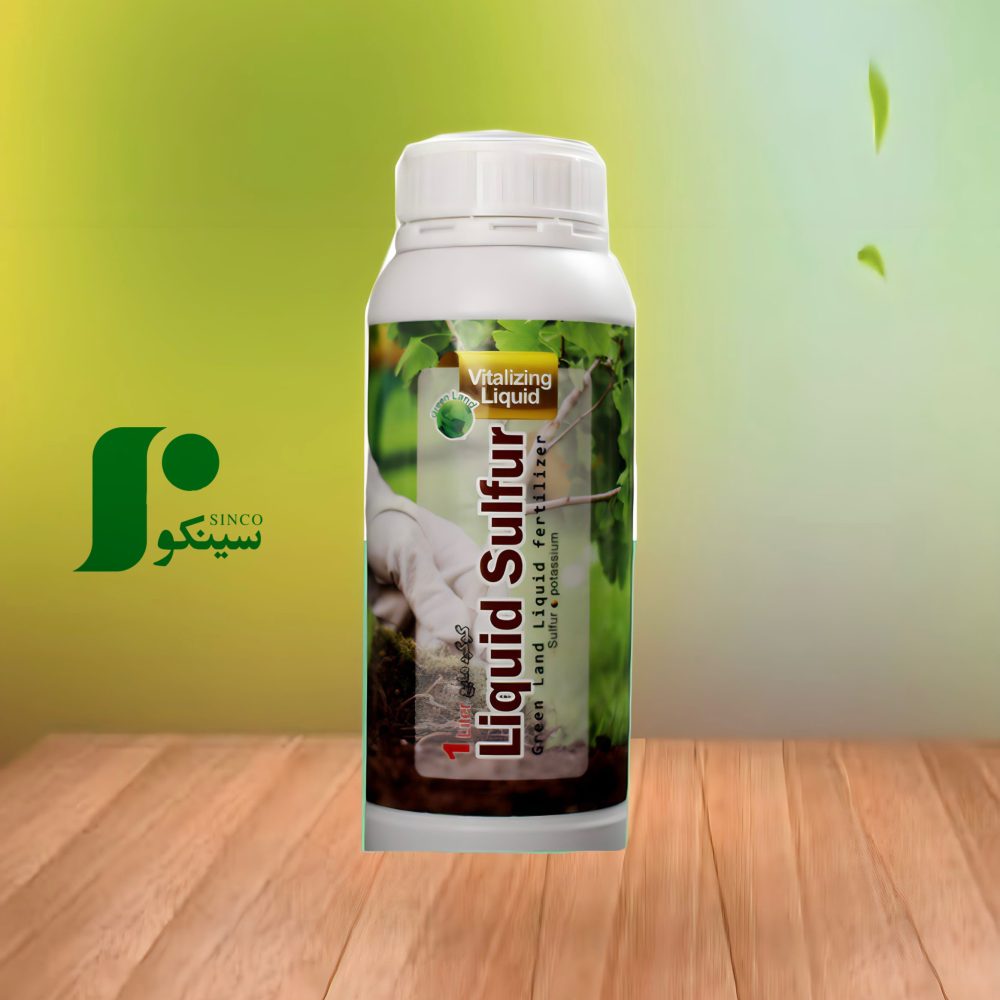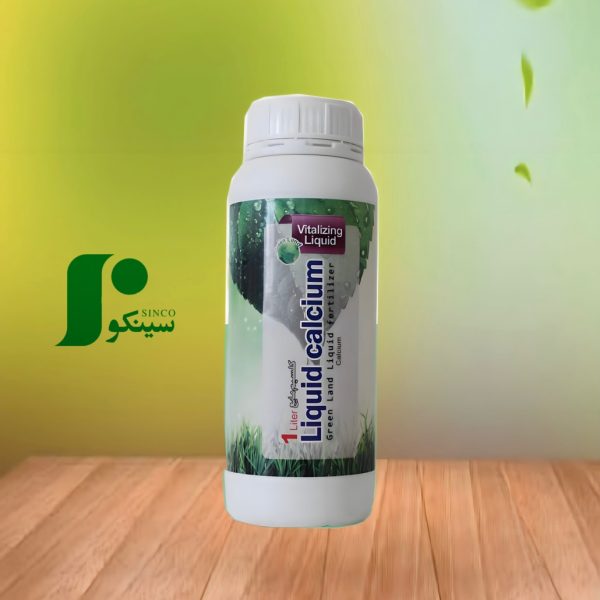Liquid sulfur
Technical Descriptions
One of the important rules of sulfur in plants is its involvement in many enzymatic activities as well as its presence in the chemical structure of many amino acids such as methionine and cysteine as well as volatile fragrance compounds in plants like garlic, onion and mustard. Oil production and improvement of fruit quality are the other rules of this element in plants. Also sulfur has fungicide property and eliminates powdery mildew disease. This element by increasing solubility of phosphorus decreases the use of phosphorus fertilizers. Sulfur involves in the formation of chlorophyll, thiamine, biotin, frodoxin (which leads to sulfate and nitrate reduction), glutathione and coenzyme A and increases plant resistant to diseases, drought and cold and prevents nitrate accumulation in plant tissues. Sulfur roles in increasing onion, fodder corn, cotton and oil seeds yield has been reported extensively.Sulfur present in this fertilizer helps plant to improve its growth. Sulfur is one of the building blocks of the amino acids like cysteine and methionine. Sulfur deficiency affects plants growth as much as nitrogen deficiency and by decreasing nitrogen to sulfur ratio in plant protein synthesis reduces and nitrogen is accumulated in plant in the form of nitrate. The importance of sulfur in photosynthesis and increasing plant resistance during cold season is known. Also, the amount of this element in oil plants is essential and important. Another sulfur role in plants is enzyme activation. Experimental results show that if sulfur mixes with organic matter and Thiobacillus bacteria with correct placement and optimum moisture it can increases agricultural products yield up to 60 %.
Instructions for use
Foliar application
Crops: 2 to 3 litres of fertilizer in hectare
Horticultural: 2 to 4 litres of fertilizer in hectare
Vegetables: 2 to 3 litres of fertilizer in hectare
Greenhouse: 2 to 4 litres of fertilizer in 1000 litres
Other advantages of sulfur application: Strong fungicide- 100 % soluble in water- cost effective- 30 % increasing in yield
Reducing use of the other fertilizers- amendment of saline, alkaline and calcareous soils- improving flavour in products
Disinfecting soil and preventing pests- increasing phosphorus, iron, zinc and manganese absorption in soil-increasing plant resistance to drought and cold
Fungicide and insecticide- eliminate powdery mildew disease- eliminate diseases in plants and preventing spread of them





Reviews
There are no reviews yet.